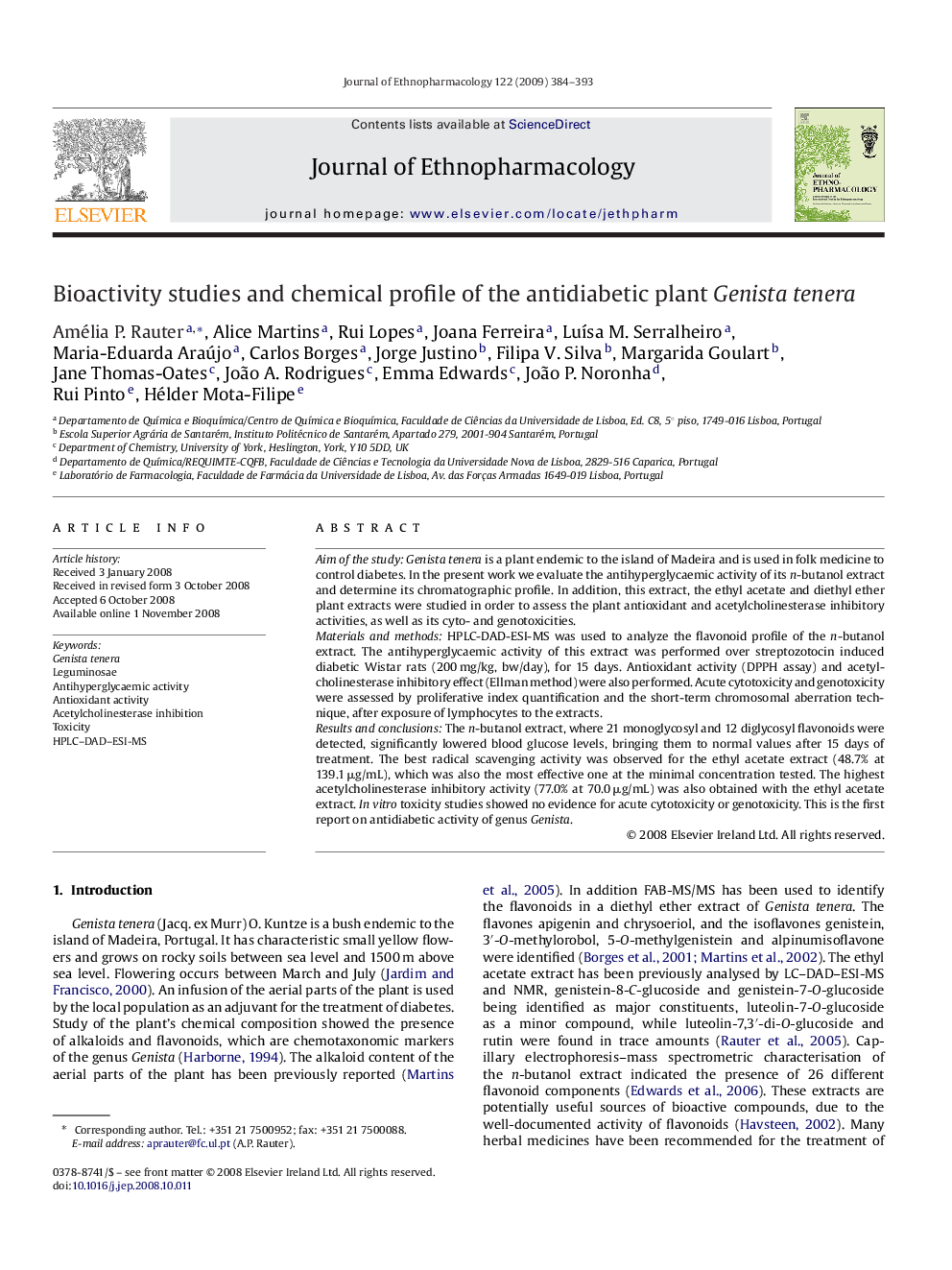| Article ID | Journal | Published Year | Pages | File Type |
|---|---|---|---|---|
| 2547021 | Journal of Ethnopharmacology | 2009 | 10 Pages |
Aim of the studyGenista tenera is a plant endemic to the island of Madeira and is used in folk medicine to control diabetes. In the present work we evaluate the antihyperglycaemic activity of its n-butanol extract and determine its chromatographic profile. In addition, this extract, the ethyl acetate and diethyl ether plant extracts were studied in order to assess the plant antioxidant and acetylcholinesterase inhibitory activities, as well as its cyto- and genotoxicities.Materials and methodsHPLC-DAD-ESI-MS was used to analyze the flavonoid profile of the n-butanol extract. The antihyperglycaemic activity of this extract was performed over streptozotocin induced diabetic Wistar rats (200 mg/kg, bw/day), for 15 days. Antioxidant activity (DPPH assay) and acetylcholinesterase inhibitory effect (Ellman method) were also performed. Acute cytotoxicity and genotoxicity were assessed by proliferative index quantification and the short-term chromosomal aberration technique, after exposure of lymphocytes to the extracts.Results and conclusionsThe n-butanol extract, where 21 monoglycosyl and 12 diglycosyl flavonoids were detected, significantly lowered blood glucose levels, bringing them to normal values after 15 days of treatment. The best radical scavenging activity was observed for the ethyl acetate extract (48.7% at 139.1 μg/mL), which was also the most effective one at the minimal concentration tested. The highest acetylcholinesterase inhibitory activity (77.0% at 70.0 μg/mL) was also obtained with the ethyl acetate extract. In vitro toxicity studies showed no evidence for acute cytotoxicity or genotoxicity. This is the first report on antidiabetic activity of genus Genista.
